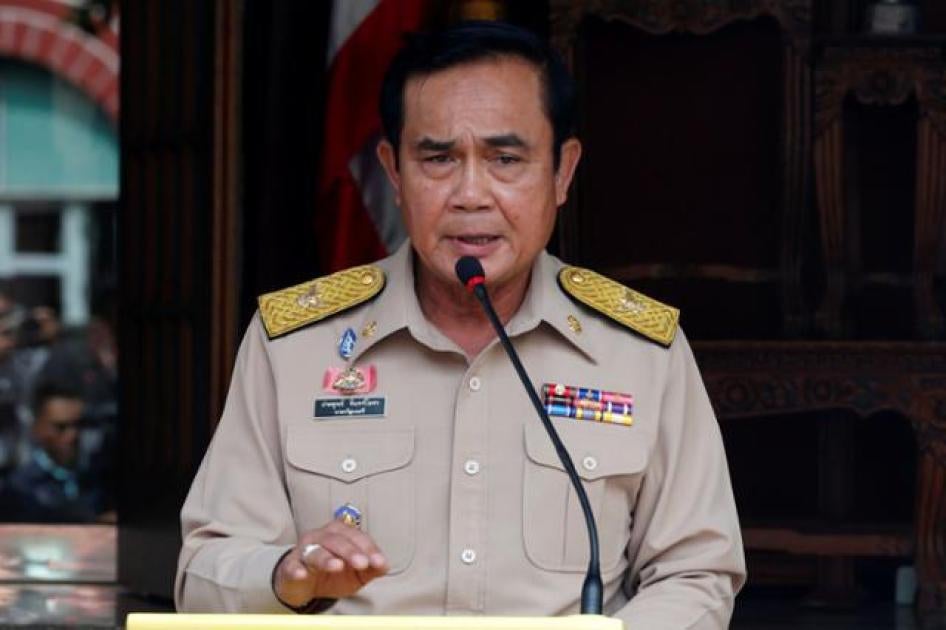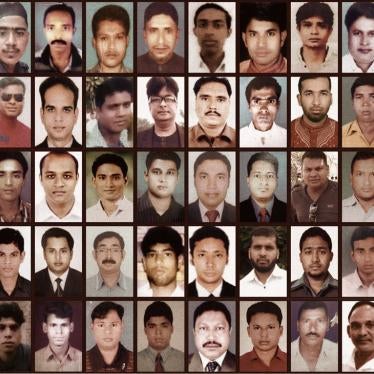(New York) – Thailand’s government has failed to abide by its pledge to make enforced disappearance a crime under Thai laws, Human Rights Watch said today. August 30 is the United Nations International Day of the Victims of Enforced Disappearances.
After years of advocacy by human rights groups, the Thai government on May 24, 2016, announced it would submit a bill to the national assembly that would criminalize torture and enforced disappearances. The government also said it would ratify the International Convention for the Protection of All Persons from Enforced Disappearance. However, the government provided no timeframe for implementing these pledges.
“Another year has passed with the Thai government failing to address the grave problem of enforced disappearances in the country,” said Brad Adams, Asia director. “As a result abusive officials continue to evade the punishment they deserve because Thai laws still don’t criminalize these cruel practices.”
Since 1980, the UN Working Group on Enforced or Involuntary Disappearances has recorded 82 cases of enforced disappearance in Thailand. Many of these cases implicated Thai officials – including the disappearances of prominent Muslim lawyer Somchai Neelapaijit in March 2004, and ethnic Karen activist Por Cha Lee “Billy” Rakchongcharoen in April 2014 – but none have been successfully resolved. Human Rights Watch and other human rights groups working in Thailand believe that the actual number of such cases in Thailand is higher due to some families of victims and witnesses remaining silent for fear of reprisal, and because the government lacks an effective witness protection system.
During the 25th Session of the Human Rights Council’s Universal Periodic Review (UPR) Working Group in May 2016, the Thai government pledged to take steps to ratify the convention against enforced disappearance and align domestic legislation with Thailand’s international obligations and recommendations by UN treaty bodies.
As drafted, the yet to be introduced bill would be the first Thai law to recognize and criminalize torture and enforced disappearance – including for crimes committed outside Thailand – with no exemptions for political or security reasons. The draft law provides that government officials who commit enforced disappearance or torture could face up to 20 years in prison; up to 30 years if the enforced disappearance or torture leads to serious injury; and life imprisonment if death results. Any commanders or supervisors could face half of the penalty if they intentionally ignore the knowledge of enforced disappearance or torture committed by their subordinates.
“Enforced disappearance” is defined under international law as the arrest or detention of a person by state officials or their agents followed by a refusal to acknowledge the deprivation of liberty, or to reveal the person’s fate or whereabouts. Enforced disappearances violate a range of fundamental human rights protected under international law, including prohibitions against arbitrary arrest and detention; torture and other cruel, inhuman, or degrading treatment; and extrajudicial execution. The UN General Assembly has repeatedly described enforced disappearance as “an offense to human dignity” and “a grave and flagrant violation” of international human rights law.
Human Rights Watch has repeatedly urged Thai authorities – including in a January 14, 2016 letter to Prime Minister Gen. Prayut Chan-ocha – to take all necessary steps to end the practice of enforced disappearance. Of particular concern is the military’s ongoing use of secret detention facilities for dissenters and suspects in national security cases under section 44 of the 2014 interim constitution and the Martial Law Act of 1914.
“Thai authorities need to follow through on their pledges to end enforced disappearances, which devastates families as well as victims,” Adams said. “The families of Thailand’s ‘disappeared’ need to know that their government is doing all it can to bring to justice those responsible for this abhorrent practice.”








